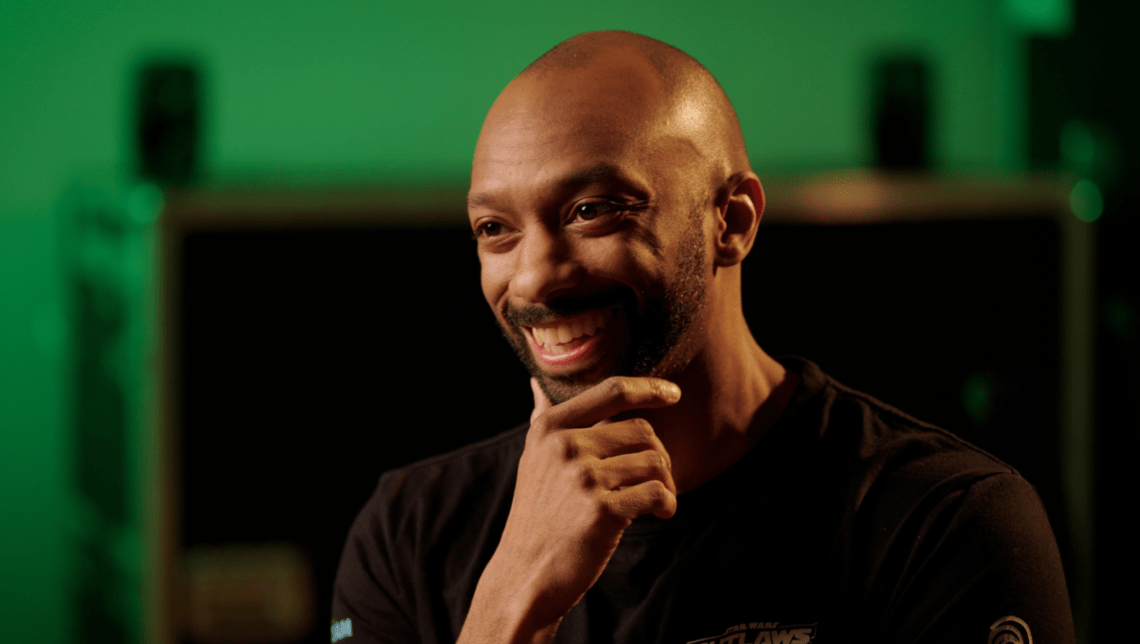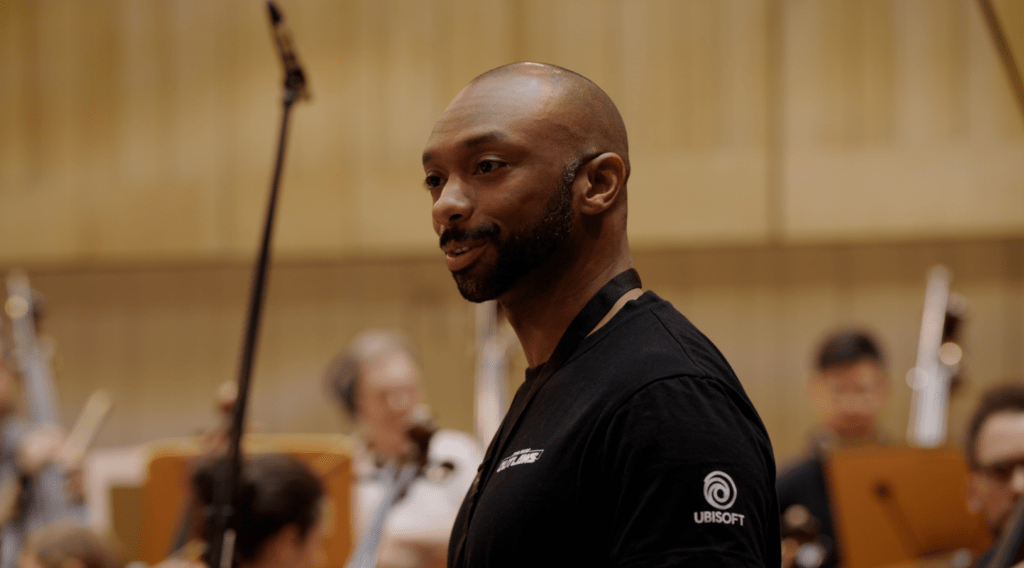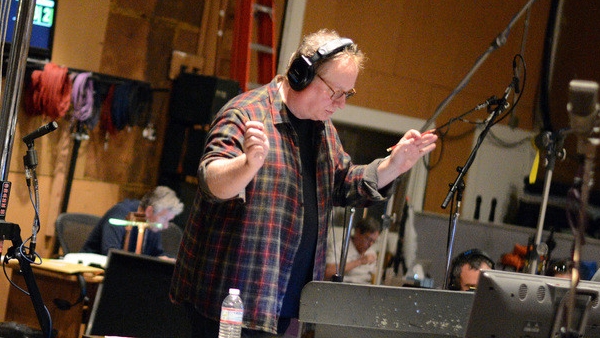On today’s episode, we take a trip to galaxies far, far away, future Earths and adventures replete with robots and robust action. The visuals are impressive, but it’s the expansive score and sound engineering that really sucks us in. We were thrilled to speak to Wilbert Roget II about his work as composer, multi-instrumentalist, and music geek who, as far as we can tell, is living the dream.
Roget has done more that dip his toe in fan-favorite and beloved properties; he’s done a back-flipping cannonball into the worlds of Mortal Kombat, Tomb Raider, Call of Duty and score fans are feeling the waves of his gargantuan splash. Now anyone can play a note and crank it to 11, but there are intricacies which Roget understands when writing, spotting or engineering his exceptional sounds.
His journey began a long time ago at the piano, but interest in classical composition only took him so far. It was trips to the arcade and Final Fantasy VII on PS1 (the original Playstation) that showed him video game music was his calling. Fast forward to college and then a career-defining stint at LucasArts, Roget made connections, honed his skill as a music assistant, editor, and implementer, and the rest is history.
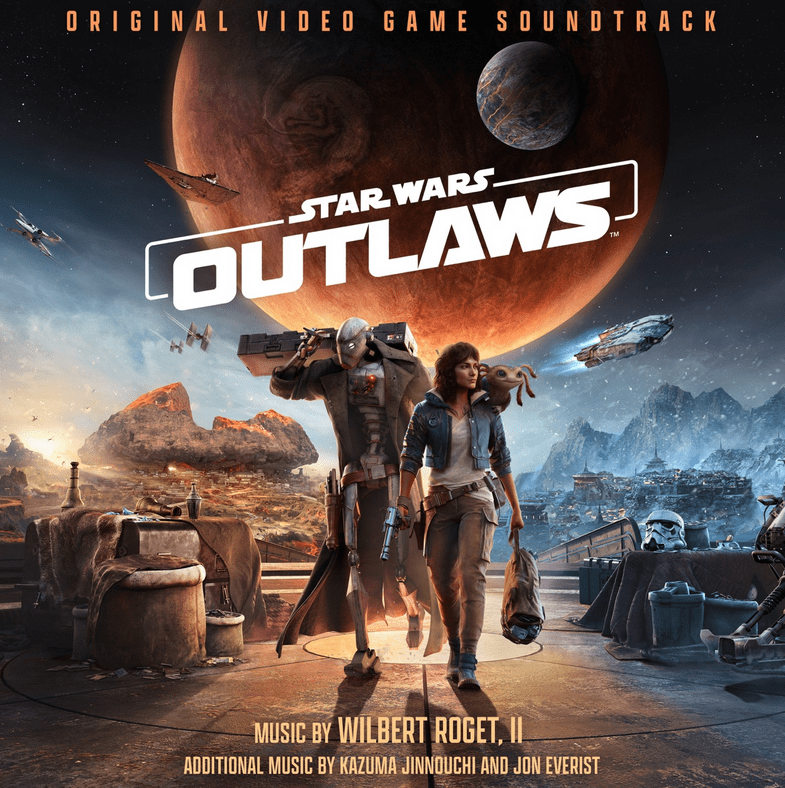
The two huge feathers in his hat this year are Star Wars Outlaws, and the Netflix limited series, Gundam: Requiem for Vengeance. They probably couldn’t be any more different – one is the first open-world Star Wars game/active shooter set on a galactic scale, the other a passive narrative about the lives of warring soldiers set in the final days of an exhausting campaign. Yet Roget crafts equally sophisticated and layered acoustic blankets for each to put character ahead of chaos.
Roget truly enjoys the creative process and challenges of composing for different video game genres and franchises. In our conversation, he tells us about the need for stylistic diversity in open-world games. For Star Wars Outlaws, he collaborated with other composers to capture the unique sounds of different planets. In contrast, historical games like Call of Duty: World War 2 required a more restrained approach to maintain authenticity. Regardless of the project, he enjoys the freedom to explore various genres and instrumentation.
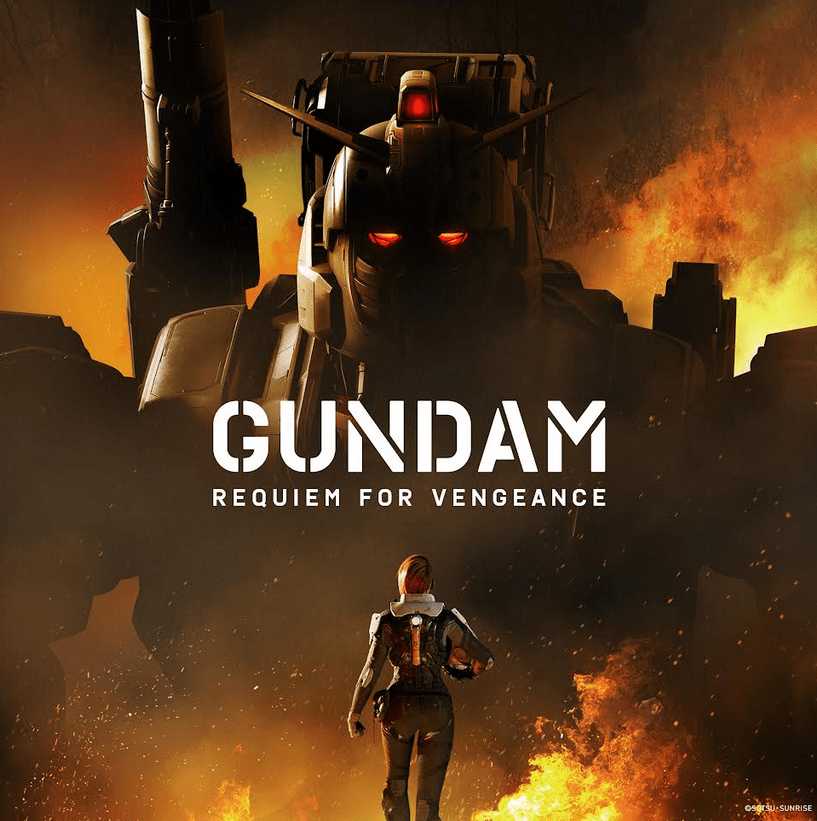
One of his biggest career challenges was working on the Gundam series. Roget felt the pressure of being the first Westerner to score for such an iconic IP, and following the likes of Yoko Kanno was no easy task. In his eyes, linear scores allowed for more relaxed and big-picture-oriented placement and editing. What is remarkable about the series are the quieter moments. Roget shared that those were some of his favorite sequences to score.
Roget did tease that there was more music that didn’t make it into the show, suggesting potential for future projects. He expressed his love for the characters and the actors, and his desire to continue working on the franchise. Time will tell. But for now, he’s got plenty of things to keep him busy – professionally and personally – as he’s a fan of good coffee, ramen, fighting games, Kung fu flicks, and more.
So suit up, grab your gear and your headphones, and jump right into this episode of The GoSeeTalk Podcast Experience. Chance of fun? High!
Check out more about Wilbert on his official website, and for all you music fans across the pond, his bio is in Japanese. Sugoi!!
